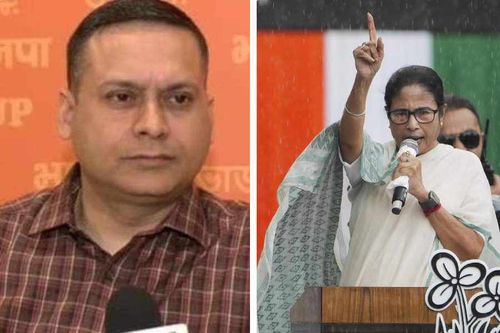Illegal Mining in Siliguri: A BJP MLA’s Call for Urgent Action
Illegal mining is a persistent issue that plagues various regions across India, and Siliguri in West Bengal is no exception. Recently, a Bharatiya Janata Party (BJP) Member of the Legislative Assembly (MLA) took a significant step by writing to the Chief Minister of West Bengal, raising concerns about the rampant illegal mining activities in Siliguri. This letter has brought the issue to the forefront, highlighting the environmental, economic, and political implications of illegal mining in the region.
Table of Contents
The Scope of Illegal Mining in Siliguri
Siliguri, located in the foothills of the Eastern Himalayas, is a crucial geographical and economic hub. The region’s rich deposits of natural resources, particularly sand and gravel, have made it a target for illegal mining operations. These activities, often carried out without the necessary permits and oversight, result in severe environmental degradation. Riverbeds are being stripped of their resources, leading to the disruption of natural water flows, increased soil erosion, and the destruction of local ecosystems.
Illegal mining in Siliguri is not just an environmental issue; it also has significant economic repercussions. The state’s revenue suffers as these operations bypass legal channels, avoiding the payment of taxes and royalties. The loss of revenue could have been invested in infrastructure, public services, and development projects that would benefit the people of West Bengal.
The BJP MLA’s decision
The BJP MLA’s decision to write to the Chief Minister is a bold political move that underscores the gravity of the situation. In the letter, the MLA reportedly accuses local authorities of negligence and possibly collusion with those involved in illegal mining. The MLA’s concerns reflect a broader sentiment among the people of Siliguri, who have long been witnessing the unchecked exploitation of their region’s natural resources.
This action by the MLA can be interpreted in several ways. It could be seen as a genuine attempt to address the environmental and economic damage caused by illegal mining. By bringing the issue to the Chief Minister’s attention, the MLA aims to push for stronger enforcement of laws and immediate government intervention to halt these activities.
However, the letter could also be viewed as a strategic political move. The BJP has been working to expand its influence in West Bengal, a state traditionally dominated by the Trinamool Congress (TMC). By highlighting the issue of illegal mining, the MLA may be attempting to challenge the credibility of the TMC government, portraying it as ineffective and corrupt. This could be a way to gain political mileage ahead of future elections.
Environmental and Social Impact

The environmental impact of illegal mining in Siliguri is profound. The unchecked extraction of sand and gravel from riverbeds has led to the degradation of the region’s natural environment. The disruption of river flows increases the risk of flooding during the monsoon season, posing a threat to local communities. The loss of vegetation and increased soil erosion further destabilize the area, making it more susceptible to landslides and other natural disasters.
Socially, illegal mining often results in the displacement of local communities who depend on the land and rivers for their livelihoods. Farmers, fishermen, and others who rely on these natural resources find themselves at a disadvantage as the environment around them deteriorates. The rise of illegal mining also fosters a parallel economy, controlled by powerful mafias who operate outside the law. This undermines the rule of law and contributes to a culture of corruption and impunity.
The Need for Urgent Government Action
The BJP MLA’s letter to the Chief Minister is a call to action that cannot be ignored. Addressing the issue of illegal mining in Siliguri requires a multifaceted approach. First and foremost, there needs to be stricter enforcement of existing laws. Authorities must crack down on illegal mining operations and hold those responsible accountable, regardless of their political connections.
Additionally, there should be increased transparency and community involvement in monitoring mining activities. Empowering local communities to report illegal activities and involving them in conservation efforts can help protect the region’s natural resources. The state government should also invest in sustainable mining practices that balance economic needs with environmental protection.
Conclusion
Illegal mining in Siliguri is a complex issue that has significant environmental, economic, and political implications. The BJP MLA’s letter to the Chief Minister highlights the urgent need for government intervention to stop these activities and protect the region’s resources. Whether viewed as a genuine concern for the environment or a strategic political move, the MLA’s action has brought the issue to the forefront, demanding immediate attention and action from the state government.







